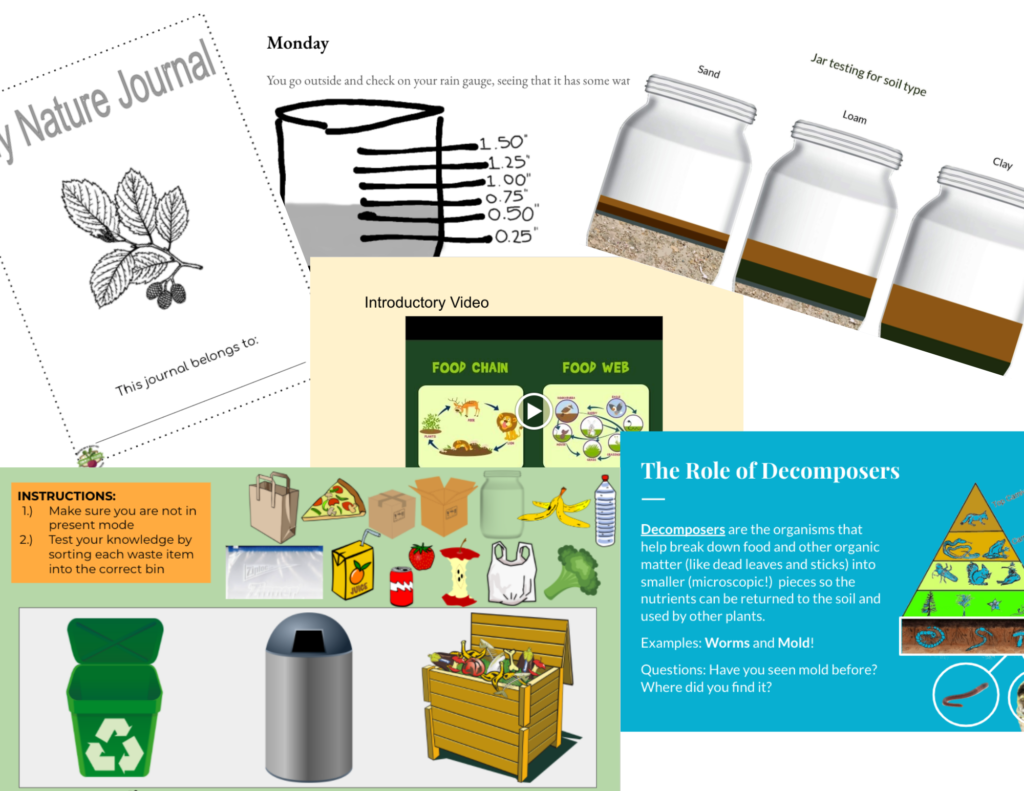This year’s team of AmeriCorps Food Educators created these great resources for teachers who have been teaching virtually during the pandemic. Check it out to see some science-based lessons for kids in 3rd-5th grade:
- 3rd Grade Lesson 1: Rainfall Representations Students will create a model that collects water from outside for an assigned period of time. Students will be able to observe changes over time, collect information and create guesses of cause and effect in their local ecosystem.
- 3rd Grade Lesson 2: Using Nature Journals Students will use nature journals to observe how a habitat changes over time by returning to the same spot multiple times and answering prompts. Students will use their observations to construct an argument about which organisms are able to survive there.
- 4th Grade Lesson 1: Virtual Waste Relay Students will learn about the four categories of waste and draw posters to represent them. Students will play a game to test what they know.
- 4th Grade Lesson 2: Soil Science Students will learn about soil particle size, examining sand, silt, clay, and loam and why certain types of soil exist in certain locations. Students will collect a soil sample and use their own observations to make a hypothesis about which type of soil they collected. Students will learn how rocks break down into soil and why certain types of soil are best for growing vegetables.
- 5th Grade Lesson 1: Food Webs Students will learn about food webs, about the different components in the food web, and about the significance of food webs. They will also create their own food webs, and share them with the class.
- 5th Grade Lesson 2: Speeding Up Decomposition Students will prepare and conduct a science experiment to observe the decomposition process using food scraps. Then students will formulate conclusions about decay rates based on different variables.

